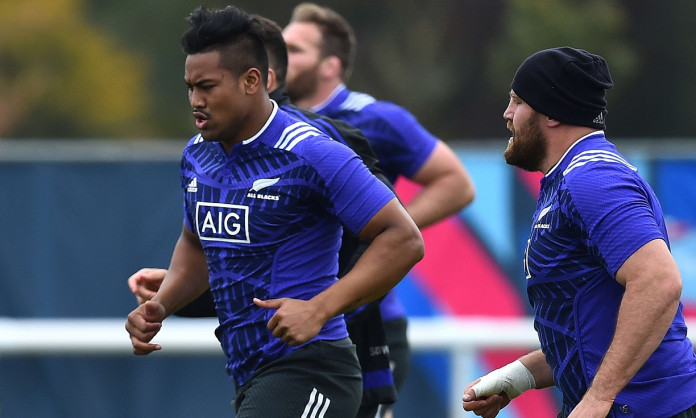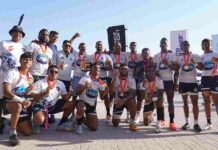If a player wearing No11 scores a try in the first World Cup semi-final on Saturday, it will set a new record. If they both manage to, it will set two.
Bryan Habana goes into the match with 15 World Cup tries, level with Jonah Lomu as the competition’s most prolific try-scorer, and Julian Savea goes into it with eight tries from this World Cup alone, a single-tournament record he shares for now with both of the above.
Try-scoring is a ruthless business, but if you expected there to be needle between the world’s arch exponents of the craft you would be disappointed. Following his hat-trick against France last weekend Savea was visibly embarrassed by comparisons with Lomu, and Habana, whose hat-trick against USA brought him to the verge of his record, was effusive in his praise of the younger man.
“I have an unbelievable amount of respect for Julian,” Habana said. “When he first got into that All Black jumper, there were a lot of doubts about his ability. To see the way he has come on leaps and bounds over the last three years, especially in this tournament, is immense. I put it out on social media on Saturday night, for him to have equalled mine and Jonah’s record for the number of tries at a World Cup is unbelievably special – due credit for a man who has worked so hard and shown himself to be a global superstar on the current stage.”
Congratulations @juliansavea7 on your record equalling try scoring feats at #RWC2015???#worldclass#respect
— Bryan Habana (@BryanHabana) October 17, 2015
Realistically, Saturday’s No11s have two matches to claim their respective records. Habana will be 36 come the next World Cup, so this one will surely be his last. If Savea, though, claims his record outright, he will have every chance of pushing for the other in Japan in four years’ time, when he will be 29.
Savea’s hat-trick on Saturday took him to 38 international tries, fifth on the All Blacks’ list, one place and try ahead of Lomu. For a man who was dropped for being overweight only three months ago it is quite the turnaround, his devastating performance in the quarter-final mirroring the improvement of his team after some listless showings.
The Springboks too have had their troubles of late. Habana knows that any improvements in their recent matches will need to be developed further if they are to prevail against the All Blacks. “We have been playing knockout rugby for the last six weeks, but we are going to need to improve in every area if we want to come out on top against an All Blacks side that showed last weekend how good they can be,” he said. “Playing against them automatically lifts that intensity tenfold. That pressure cauldron you get put into tends to bring the best out of you.”
It will have to. South Africa have won just two of the last 12 meetings between the two sides, which is as good a record against the All Blacks as any, but still some way short of convincing. But, if there are any mind games to play this week, Duane Vermeulen, another to have rediscovered the best of himself at this tournament, took a gentle poke. “When you are winning,” he said, “you gain confidence. That’s one thing they can definitely show. But other teams have learnt in the past that you can’t be over-confident – and I’m not saying they are. There’s a fine line between confidence and arrogance. I’ve seen that in some of the teams I’ve been a part of. There’s definitely that fine line. As South Africans, it’s not that we like to be the underdog, but it’s always a good motivation for us.”
And not the only one. The Springboks have been shocked by the news that a 25-year-old teacher and rugby coach was murdered by a gang of 12 in a park in Johannesburg, along with a friend. He was known to be a passionate fan of the Springboks. “Life does sometimes get put in perspective really sharply,” said Habana. “For us, it’s about understanding the privilege of waking up, being able to see, walk, use both hands, but when a tragedy like that happens, you really appreciate life so much more.
“Rugby has inspired and given hope to our country. That iconic moment of the late Nelson Mandela giving Francois Pienaar that trophy back in 1995 was a watershed moment not only for myself and a lot of players, but for our country. Going out there on Saturday, we’d love to inspire, give back and hopefully unite a nation that so dearly needs it at the moment.”

















